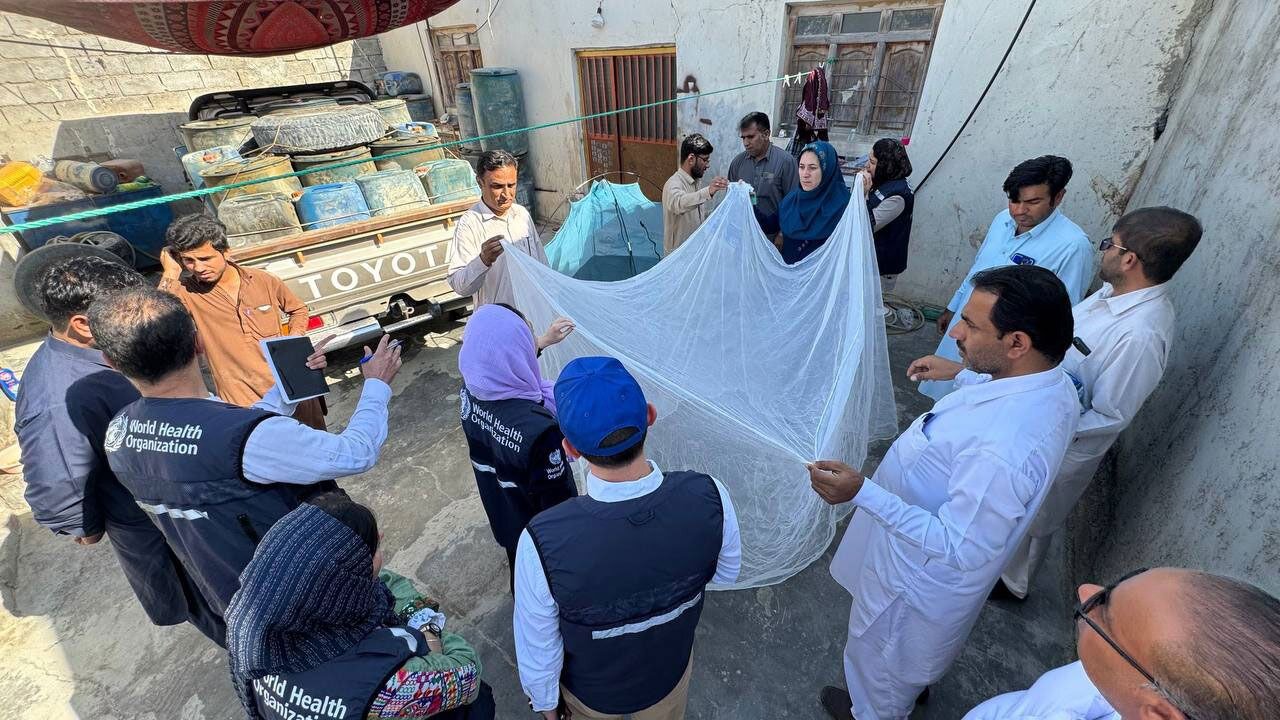Japan supports WHO in fight against malaria surge in SistanBaluchestan
Japan supports WHO in fight against malaria surge in Sistan-Baluchestan
TEHRAN –Recognizing the urgent need for taking action to eradicate the surge in malaria cases in southeastern regions, the Government of Japan has provided a generous contribution to support the World Health Organization’s efforts.

The donation involved 4,902 mosquito dome tents, offering families protection from infected mosquitos, 50,000 malaria rapid diagnostic tests (RDTs), enabling health care workers to quickly identify and treat infected individuals, and 1655 kg of insecticides, deployed to contain mosquito populations at their source. The combined resources are estimated to benefit 77,400 people in the province, the WHO website announced in a press release on January 15.
In 2018 and 2019, the Islamic Republic of Iran appeared to have won the battle against locally transmitted malaria. The victory proved fragile: in 2022, the province experienced a staggering 5-fold increase in malaria cases compared to the previous year.
The dramatic rise in cases has been attributed to the devastating floods in neighbouring Pakistan in September 2022 which led to an expansion of malaria breeding sites. The porous border with Pakistan – infected individuals and mosquitos can easily cross back and forth – poses a significant challenge, as do poverty, limited access to clean water and sanitation and inadequate housing which create ideal conditions for malaria transmission.
In December 2024, the WHO mission observed the proactive approach to malaria control demonstrated by local health workers as they conducted house-to-house screenings, distributed mosquito nets and educated communities on how to use them.
“Active case finding that complements passive surveillance is essential in selected communities in Chabahar, where access to health care can be extremely limited,” said WHO Deputy Representative and Health Emergencies Lead in the Islamic Republic of Iran, Mikiko Senga.
“By identifying both symptomatic and asymptomatic cases, we can effectively break the cycle of transmission and support efforts towards malaria elimination, particularly in communities with low health literacy which is often associated with low health care seeking behaviour.”
The mission provided valuable insights into Chabahar’s health care infrastructure, highlighting capacities and gaps. Social determinants of health were identified as key factors influencing the spread of malaria, underscoring the need for targeted interventions.
The partnership with the Government of Japan serves as an example of how international cooperation in responding to public health emergencies helps protect vulnerable populations.
The fight against malaria in Chabahar, as well as in the rest of Sistan-Baluchestan province, continues. With the combined efforts of WHO, the Government of Japan and local health authorities, there is hope that this outbreak can be contained.
In October 2024, the Government of Japan procured 50,000 malaria rapid diagnostic tests as well as 4,902 mosquito dome tents to enhance the capacity of the health ministry to address the prevalence of malaria in Sistan-Baluchestan province.
The tests were distributed to health centers and hospitals in Sistan-Baluchestan province through 3 universities of medical sciences, namely Zahedan, Iranshahr and Chabahar – in the province.
The mosquito tents have been distributed to the same 3 universities of medical sciences in the province.
WHO Representative and Head of Mission in the Islamic Republic of Iran Syed Jaffar Hussain highlighted the broader impact of the donations: “The impact of these donations, made with the support of the Government of Japan, extends beyond immediate malaria prevention and diagnosis. By strengthening the capacity of local healthcare systems, these efforts contribute to the long-term goal of malaria elimination in the Region. The availability of rapid diagnostic tests ensures that suspected cases of malaria can be confirmed quickly, reducing the risk of severe illness and death, while the use of mosquito tents provides a practical and effective means of protection for those most at risk, helping to break the cycle of transmission.”
The comprehensive support provided by WHO and the Government of Japan enhances the capacity to combat malaria, protect public health and contribute to the overall well-being and resilience of affected populations.
MT/MG
source: tehrantimes.com